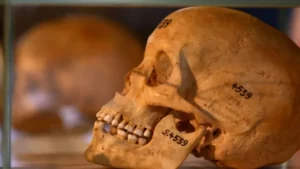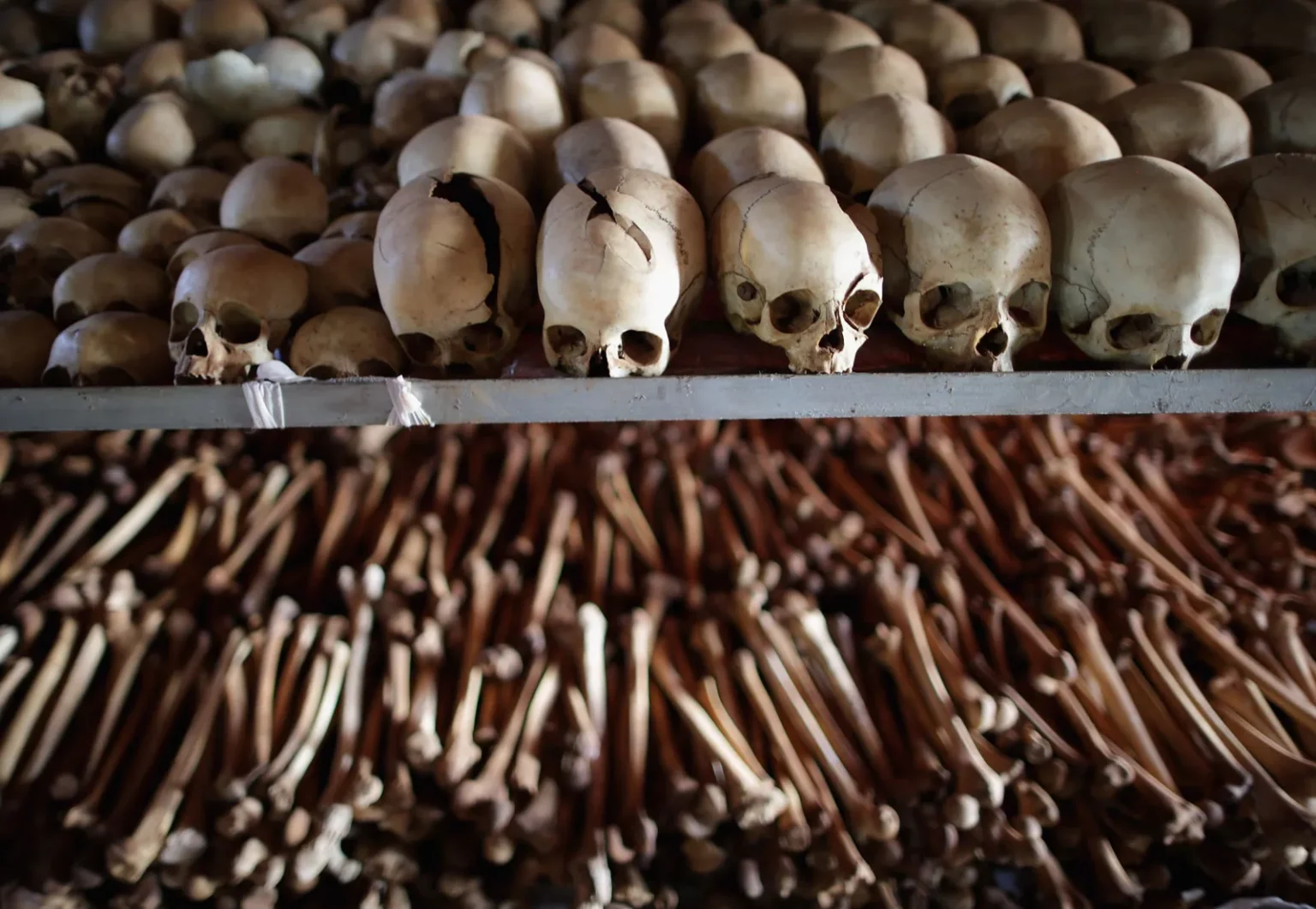Its been 124 years ,since almost 300,000 innocent lives were brutally murdered . Their crime was simple .Refusing to cultivate cotton for export .
Their remains all battered and somewhat impossible to put together, made it even difficult for their families to give them a befitting burial.
The perpetrators of this hideous crime, did not end there , instead they decided to transport the skulls of these victims back to their Country as a show of supremacy and the achievement of assembling these skulls as trophies .
Read More:Rwanda Marks 30 Years Since Genocide Horrified The World
The genocide attack on Tanzanians , then Tanganyika by the Germans,happended when Tanzania was under the German colonization, in 1900. Their rule ,was primarily driven by imperialistic ambitions, racial superiority beliefs, and economic interests.
Aimed at exploiting the country’s resources , the Germans establish control over strategic trade routes, and assert dominance over the local population.
As part of their colonial rule, the Germans then implemented oppressive policies that marginalized and exploited the indigenous populations of Tanzania. The imposition of forced labor, heavy taxation, land acquisition and brutal suppression of any resistance were common tactics used to subjugate the local communities.

The people of Tanganyika were forced to work without pay, and things got even worse when they were told to stop cultivating food crops.
Hunger began to gnaw at them to the extent that they started eating the cotton they cultivated in the fields for their colonizers.
The fear instilled by examples of people who showed defiance by refusing to be enslaved by the Germans, being whipped naked in front of their wives and children, and others being shot, chilled their hearts,making everyone accept these abuses reluctantly.
Deeply ingrained with racist beliefs that portrayed Africans as inferior and justified their mistreatment and exploitation, the Germans ,continued dehumanizing Tanzanians with impunity .
The maji maji rebellion , which was primary in response to the harsh conditions imposed by German colonial authorities and their exploitation of the local population. Tanzanians from various ethnic groups united in a resistance movement against German colonial rule.
In retaliation, the Germans launched a brutal military campaign to suppress the rebellion. Villages were destroyed, crops were burned, and thousands of Tanzanians were killed in a ruthless crackdown.
The Germans used extreme violence and tactics such as mass executions, forced labor camps, and scorched-earth policies to quash the rebellion and maintain control.
Today ,Descendants of tribal leaders executed by German colonial forces are demanding the return of their ancestors’ skulls, believed to be held in a museum in Berlin.
One of those killed was Mangi Meli, a leader of the Chagga tribe and Kinjekitile Bokero Ngwale who was hanged for treason in August 1905 by German Collonial officials .
Kinjekile Ngwale was believed to be the initiator of what came to be known as the “maji maji war”, as he was Idolised as a SPIRIT” from water that that managed to convince 100s of Tanzanians that his sacred water has the powers to protect them from the German bullet during 7-year war.
The legacy of this dark chapter in history continues to impact Tanzania and serves as a reminder of the atrocities committed during the colonial era.
Indeed .
The “Maji Maji Rebellion” will still remain a horrific experience to Tanzanians despite the apologies recently rendered by the President of Germany Frank-Walter Steinmeier
in 2023.
Just as the Germans were in 2018 able to send the skulls of brutally murdered Nambian victims in a similar genocide attack, it will just be right for the country to return the skulls of the heroes that went down during the “maji maji rebellion ” so their families can consoled.. Sometimes saying a mere SORRY is not enough, bring back our skulls.



Yeah bookmaking this wasn’t a risky conclusion outstanding post! .
I am not sure where you’re getting your info, but good topic. I needs to spend some time learning much more or understanding more. Thanks for fantastic info I was looking for this information for my mission.
I conceive this site has got very good indited content material blog posts.
There are certainly a whole lot of particulars like that to take into consideration. That could be a great point to bring up. I supply the ideas above as basic inspiration however clearly there are questions just like the one you bring up the place an important factor will probably be working in honest good faith. I don?t know if greatest practices have emerged around issues like that, but I am positive that your job is clearly recognized as a good game. Both girls and boys feel the impact of only a second’s pleasure, for the rest of their lives.
I think you have observed some very interesting points, appreciate it for the post.
My brother suggested I may like this blog. He used to be entirely right. This publish truly made my day. You can not consider just how a lot time I had spent for this info! Thank you!
You really make it appear so easy along with your presentation however I to find this matter to be actually one thing that I think I would by no means understand. It sort of feels too complex and extremely huge for me. I am looking forward for your subsequent submit, I¦ll attempt to get the dangle of it!
Great website. A lot of useful information here. I¦m sending it to a few pals ans also sharing in delicious. And naturally, thanks in your effort!